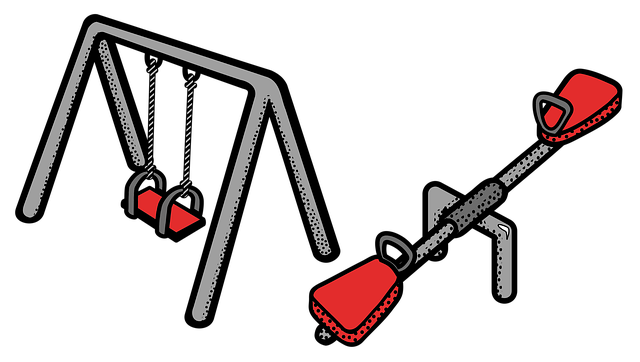Ocean County's sober living homes serve as a critical step in the recovery process for individuals transitioning from formal rehab programs. These homes offer a structured, supportive environment that promotes sobriety through peer support, accountability, and community engagement. Residents are encouraged to take charge of their recovery journey while participating in daily responsibilities and therapeutic activities. The homes provide a framework for sustained sobriety by offering personalized care, educational opportunities, and employment assistance within a drug-free environment. Ocean County's network of sober living homes emphasizes the importance of collective support in recovery, leveraging both peer mentorship and professional guidance to help residents achieve long-term success in maintaining sobriety. These homes are integral to the broader recovery ecosystem, offering a transition from intensive treatment to independent living with continued support for a substance-free future.
Exploring the journey of recovery in Ocean County, New Jersey, this article delves into the transformative power of Sober Living Homes. It provides a detailed examination of how these communities foster a supportive environment for individuals striving for long-term sobriety. From understanding the principles of community-based recovery to exploring the benefits of residential rehab, we’ll cover the myriad resources and support systems available. Key features of successful sober living homes, strategies for navigating insurance for treatment, and the role of aftercare programs in sustained recovery are all pivotal topics addressed. Additionally, this piece will highlight activities, educational opportunities, and employment assistance that contribute to a holistic approach to recovery. Join us as we explore how these homes not only offer a structured environment but also emphasize peer support and the importance of boundaries for a balanced transition towards independent living. The impact on families and relationships is also considered, providing a comprehensive overview of the recovery landscape in Ocean County.
- Understanding Sober Living: A Community Approach to Recovery
- Ocean County's Sober Living Homes: A Comprehensive Overview
- Benefits of Residential Rehab in Ocean County
- Structured Environment and Support at Sober Living Facilities
- The Role of Sober Living in Long-Term Sobriety
- Key Features of Effective Sober Living Homes
Understanding Sober Living: A Community Approach to Recovery

Ocean County’s sober living homes represent a community-centric approach to recovery, offering a structured environment for individuals transitioning from treatment centers to independent living. These homes foster a sense of camaraderie and mutual support among residents who are all committed to maintaining sobriety. The community aspect is not just about shared living spaces; it’s about creating a network where residents can share experiences, challenges, and triumphs over substance use disorder. The recovery journey within these homes is underpinned by a set of principles that emphasize personal responsibility, accountability, and active participation in one’s own healing process. Residents are expected to adhere to a drug and alcohol-free lifestyle while engaging with the community through chores, house meetings, and often, part-time employment or educational pursuits. This approach not only supports individual recovery but also contributes to the collective well-being of the home, reinforcing the idea that sobriety is more achievable when supported by a strong, understanding, and empathetic community.
Ocean County's Sober Living Homes: A Comprehensive Overview

Ocean County, New Jersey, has established a robust network of Sober Living Homes (SLHs) that play a pivotal role in the recovery journey of individuals who are transitioning from structured treatment facilities to independent living. These homes offer a structured environment where residents can maintain their sobriety while developing life skills and reintegrating into the community. The SLHs in Ocean County are designed to provide a supportive peer network, which is crucial for long-term recovery. Residents are encouraged to engage in various therapeutic activities, attend regular support group meetings, and pursue educational or vocational opportunities, all within a framework that promotes accountability and personal responsibility.
The effectiveness of these homes is underscored by their comprehensive approach to recovery, which includes not only abstinence from substance use but also addressing underlying issues such as mental health concerns and co-occurring disorders. The staff at these facilities are trained professionals who offer guidance and support tailored to each individual’s needs. Moreover, the homes adhere to a set of community standards that ensure a safe and healthy living environment for all residents. This combination of structure, peer support, and professional oversight makes Ocean County’s Sober Living Homes a vital component in the continuum of care for those on the path to recovery.
Benefits of Residential Rehab in Ocean County

Residential rehabilitation centers in Ocean County offer a structured environment that is conducive to recovery for individuals struggling with substance use disorders. The benefits of this form of treatment are manifold, starting with the round-the-clock support provided by trained professionals who understand the challenges and complexities of addiction. These facilities offer comprehensive care, which includes medical monitoring, counseling sessions, and educational programs designed to address both the immediate needs of recovery and long-term strategies for maintaining sobriety. The peer support system within sober living homes is particularly valuable, fostering a sense of community and mutual accountability that can significantly enhance an individual’s chances of long-term success in their recovery journey.
Furthermore, residential rehab in Ocean County provides a safe haven away from the triggers and negative influences that may contribute to substance use. The immersive setting allows for a focused approach on healing, where patients can engage in evidence-based therapies tailored to their unique needs. These therapies often include cognitive-behavioral therapy, group therapy, and individual counseling, all aimed at identifying the underlying issues that contribute to addiction. Additionally, many Ocean County sober living homes offer aftercare programs that help residents transition smoothly back into society, ensuring they have ongoing support as they rebuild their lives and pursue a fulfilling and substance-free future.
Structured Environment and Support at Sober Living Facilities

Ocean County sober living homes offer a structured environment designed to support individuals in recovery from substance use disorders. These facilities provide a framework that promotes accountability, responsibility, and discipline, which are crucial components for maintaining long-term sobriety. Residents engage in daily routines that include chores, curfews, and scheduled activities intended to foster a sense of community and personal responsibility. The homes often require residents to hold down employment or pursue educational goals, reinforcing the importance of productive engagement with society.
Moreover, the support system within these facilities is robust, comprising peer mentorship, group therapy sessions, and access to professional counseling. The staff at these homes are trained to facilitate a recovery-oriented lifestyle, offering guidance and resources that address the various challenges faced during early recovery. This includes managing emotional well-being, navigating social dynamics, and developing coping strategies for stress and triggers. The collective experience of residents provides an opportunity for shared learning and mutual support, creating an environment where individuals can thrive and build a foundation for a life in recovery.
The Role of Sober Living in Long-Term Sobriety

Ocean County, New Jersey, has a robust network of sober living homes that play a pivotal role in the recovery journey of individuals striving for long-term sobriety. These residences offer structured environments where recovering individuals can transition from the intensive treatment typically received in rehabilitation centers to more independent living while maintaining a substance-free lifestyle. The framework provided by sober living homes emphasizes accountability, community support, and adherence to personal health goals. Residents are expected to contribute to household chores, abide by community rules, and often participate in regular drug testing, which helps to reinforce their commitment to sobriety.
Furthermore, these homes provide a platform for residents to build meaningful relationships with peers who share similar experiences and challenges. The camaraderie fostered within these communities can be instrumental in developing a strong support network that extends beyond the home’s walls. This peer support, combined with access to ongoing counseling, educational programs, and employment assistance, significantly enhances the likelihood of sustained sobriety. The role of sober living homes in Ocean County is not just about providing a roof over one’s head; it encompasses nurturing an environment that encourages personal growth, resilience, and long-term recovery.
Key Features of Effective Sober Living Homes

Effective sober living homes provide a structured environment that fosters recovery for individuals transitioning from treatment programs to independent living. These residences are characterized by their commitment to a drug and alcohol-free lifestyle, with clear rules and expectations that residents are expected to adhere to. A key feature of these homes is a strong sense of community; residents support one another in their shared journey towards sobriety. Peer support networks within the home encourage accountability and offer a platform for members to share experiences and coping strategies.
Structured daily routines, including scheduled group activities, individual therapy sessions, and educational opportunities, help residents develop healthy habits and life skills that are conducive to long-term sobriety. Additionally, these homes often require residents to contribute to household responsibilities, promoting a sense of personal responsibility and fostering independence. Effective sober living homes also maintain ongoing communication with professional treatment providers to ensure that each resident receives comprehensive care tailored to their specific needs. Regular drug testing and the implementation of clear guidelines for conduct further support the sobriety goals of the residents. Through these combined efforts, sober living homes serve as a stable foundation for individuals to rebuild their lives and embrace a future free from substance abuse.
In conclusion, Ocean County’s network of sober living homes represents a critical component in the broader recovery ecosystem. These residences offer structured environments and robust support systems that play a pivotal role in fostering long-term sobriety for individuals in recovery. The community-oriented approach emphasized in these homes not only promotes personal growth but also encourages residents to integrate into society while maintaining abstinence from substance use. The comprehensive benefits of residential rehab in the area, coupled with the key features of effective sober living facilities, underscore their significance as a step towards sustained recovery. Prospective residents and their families can find reassurance in the evidence that supports the positive outcomes associated with this model of recovery.

